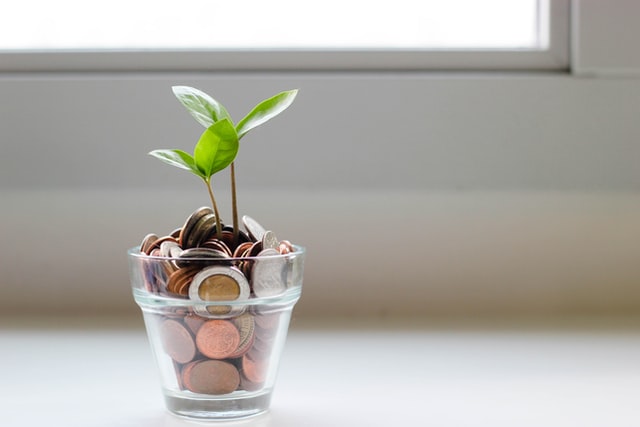
Can we be happier by spending less money? We buy items that we really don’t need, depriving ourselves of hard-earned resources, even going into debt only to make the 1% affluent minority even richer. Apparently, many people aren’t aware about the widespread societal conditioning which puts a perpetual sense of lack in our minds. The human tendency to purchase more than necessary has been subjected to a lot of criticism. So, what drives many to work overtime in jobs they dislike? The issue lies in allowing ourselves to be influenced by advertising. We seem to get easily influenced by their environment, trends, and the opinion of others. We tend to feel a sense of contentment in one moment but experience a complete sense of lack in the next due to the inner monologue telling us that we need this and that. Our materialistic lifestyle could bring us status, respect, praise, attention, or short-term pleasure but at the cost of enduring pain and discomfort. The fact is we can exchange time for money but can’t exchange money for time. Is there any way out? Well there certainly is. It is called Financial Minimalism.
Financial Minimalism is the ability to perceive between necessity, practicality, and luxury to prevent ourselves from becoming prisoners of our own possessions. It is the process of embracing quality over quantity in terms of money. Simplification is the foundation of financial minimalism. This can be explained by an example. ‘Aaron’ was working a regular daytime job in an MNC based in Mumbai. He worked diligently and sometimes toiled for extra hours. He was earning a lucrative salary but still craved to earn more to upgrade his lifestyle. He used to spend almost 90% of his salary in maintaining his extravagant lifestyle which included living alone in a spacious apartment, buying expensive designer clothing and accessories, frequenting restaurants, paying monthly subscriptions for entertainment, and travelling to exotic locations. His insatiable desire to obtain more money forced him to take up a night shift job which paid him extra for working in a graveyard shift. This intensified his decision to spend more money and he ended up buying costly gadgets and upgrade to an expensive smartphone. But one day the harsh reality of life hit him as the government imposed an abrupt lockdown due to the pandemic.
After this, Aaron’s company halved the salary of its employees and he soon realized that he could no longer maintain his luxurious lifestyle. But this issue was only the tip of the iceberg. The major blow came to Aaron when he was dismissed from his job after one month due to the company’s declining sales because of lockdown. After that, he couldn’t find another job and ended up borrowing money from his friends, getting into debt and was left feeling terrified and anxious.
Aaron’s story can be a Wakeup Call for anyone who usually buys things they don’t need to impress others they don’t like with money they don’t have. I know it sounds cliché. If Aaron had chosen to live within his means, there would have been no need for a second job. Had he saved money for a rainy day, he could have been in a much better position both financially and mentally. Not only did the unfortunate event impact him economically but it also affected his mental health. When an individual lives an indulgent lifestyle without planning for the future, then it has dire consequences in the long run. It is precisely due to this reason that we should all learn to curb our spending and switch to Financial Minimalism. Today, many have limited disposable income after deducting essential expenses such as rent, food, and travel. We would be better served to remember that we don’t buy things with money but hours of our lives.
Consider how many hours of work it would cost to purchase the new smartphone or vehicle. The price of anything is the amount of life that we exchange for it. The moment we consider our expenditures through the perspective of exchanging our life instead of currency, we can we bring about change in our attitude towards money. The next time we decide to buy something, it is important to be mindful about the truth that we are paying for purchases with our time and labor. This mindset will lead to greater self-control rather than splurging money resulting in increasing the figures in our savings and investing accounts.
Reader, if you are living from paycheck to paycheck with low or no savings at the end of the month, then the time is right for a Financial Minimalism Spending Plan which offers tips to manage your hard-earned money better:
- Create a Monthly Budget – In order to maintain a balance between income and expenditure, it is important to have a monthly budget. It will record earnings from all sources and then deduct the expenses from it. It will enable the user to monitor their spending patterns which will enable them to minimize all the non-essential expenses thereby boosting their savings.
- Prioritizing Debt Payments – This will allow the user to keep their debts under control and not acquire new debts. The Dave Ramsey Baby Steps are a wonderful way to get out of debt and learn to remain out of debt.
- Setup Automatic Savings/Investing – This step will allow the user to set it and forget it. They will later thank themselves for the compound interest.
- Create an Emergency Fund – It is important to have and Emergency Fund which can be utilized for unexpected expenses such as repairs for the car or home, replacing damaged equipment or having an emergency dental procedure. Keeping an Emergency Fund will prevent the need to touch the hard-earned savings for any unplanned expenses.
- Curb the Impulse Purchases – We are constantly bombarded with Marketing for products and services. We need to remind ourselves of our long-term saving and investing goals in order not to give in to Impulsive Purchases. Remember the basic rule which is ‘Money saved is money earned.’
The pandemic has taught us the importance of living a simple, self-sufficient life by cutting down on unnecessary costs. Financial Minimalism can help us rid ourselves of stress and unhappiness as it acts as a defense mechanism against economic dry spells thus protecting us from getting into trouble. Isn’t this an act of resistance against our materialistic society?
https://www.simplysimple.org/
Author Amulya










